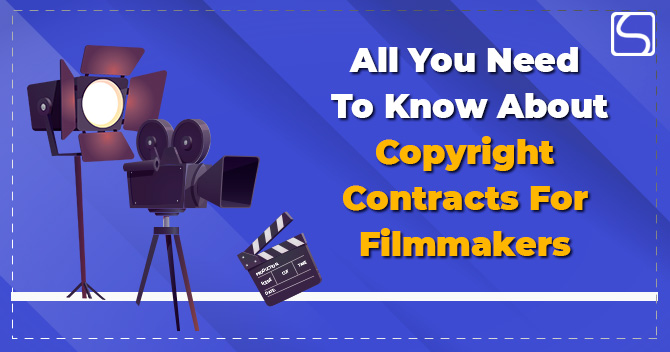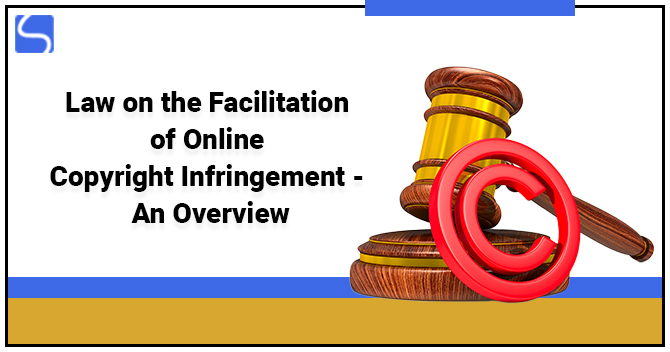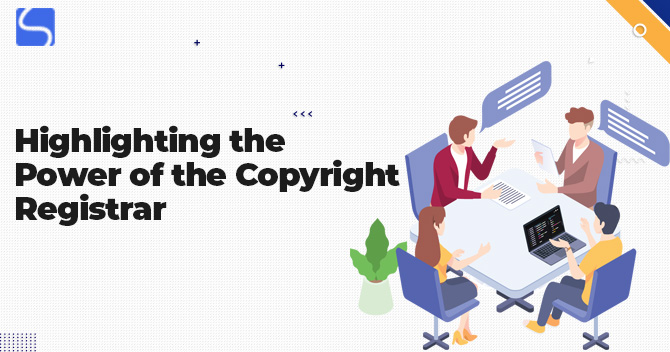All You Need To Know About Copyright Contracts For Filmmakers

Karan Singh | Updated: Mar 03, 2022 | Category: Copyright
Copyright Contracts for filmmakers are one of the most complex scenarios for any Copyright Attorney, not more complicated for the producer that has barely any or no experience in the subject. There are many rights, contracts, and releases involved, and for a beginner in the business, the chances of missing something is extremely high. In this blog, we will discuss Copyright Contracts for Filmmakers.
Table of Contents
Who are Filmmakers?
Before we discuss Copyright Contracts for Filmmakers, let’s understand who filmmakers are. Filmmakers are those who are in charge of directing, developing, and producing movies. Films are highly particular to the filmmakers as they are the creative manifestation of their ideas & thoughts. They spend hours making or producing the film to fit the time constraint while also delivering entertainment and knowledge to the viewers and emphasising the talents of the performers & artists featured in the film. The film industry of India is one of the biggest and oldest film industries in the world. Every year, it releases around 100 times, which are well-received by people all over the world. Does not it make you wonder how these filmmakers safeguard their creative works like movies & films from people who try to copy or make replicas of their works and call them their own? This is where Copyright Contracts for Filmmakers come to play.
What do you mean by Copyright and how important is Copyright in India Film Industry?
The first movie appeared in India in 1896, and the subject of piracy was initiated to gain legal attention in 1928 and start to reach the courts. Prior to the Brussels Act, films or movies lacked independent Copyrights and couldn’t file for Copyright Registration due to their things like songs, scripts, and so on. Cinematograph Films were identified as independent Copyrights after the 1950s, when India has developed into one of the world’s biggest film production nations, as an outcome of the Brussels Act, 1948, which revised the Berne Convention.
For the past many years, contracts in the film industry were handled only by oral agreements. This had to change due to the necessity for IP Laws, which were enacted in response to the litigation that arose as an outcome of disputes, breach of contract, Copyright Infringements, etc.
What is Copyright Contract and why are Copyright Contracts for Filmmakers Important?
A Copyright Contract is an agreement that gives exclusive rights to utilise the creative works of the Copyright owner for a certain period of time in exchange for consideration or, in some instances, transfers the complete ownership of the Copyright to the individual.
- Usually, it allows the Copyright owner to decide how, where, and when the material can be used by others;
- A Copyright owner can allow some of their exclusive rights to be exercised by another person via a Copyright License Agreement.
It shouldn’t be confused with Copyright Assignment, where there is a transfer of ownership and the Copyright title to another person. In the assignment, once the Copyright owner sells their ownership rights, he or she cannot control how the other party uses those rights. Hence, there are two types of Copyright contracts in order to enable the exploitation of Copyright by 3rd parties:
- Copyright License Agreement;
- Copyright Assignment Agreement.
Be Careful with the Copyrights Contracts for Filmmakers
As in any part of the creative or artistic filmmaking process, every contract has to be protected, so there will be no surprises in the end. Imagine that the screenwriter writes a poor ending, that the Director of Photography (DOP) uses the wrong lights for some scenes that the Casting Director hires based on the budget instead of the acting talent. Mostly a partially messed up movie and, without a doubt, an unhappy crew.
However, the same is in Copyright Law. Every contract in the film production could mess up your overall movie, but overall, every contract has the same late effect & that is, if not done properly, most surely it will bring trouble in the upcoming future.
Role of Copyright in the Indian Film Industry
Copyright covers artistic and literary works and thus play a very important role in the Indian Film Industry, which contributes significantly to the economic growth of India. When artists or authors register for Copyright, they get ownership rights over their creative works. For example, Copyright Contracts for filmmakers registered under the Copyright Act 1957[1] gets exclusive ownership rights over their films & movies. Various rights are granted to a Copyright owner under Section 14 of the Copyright Act, 1957, by the Copyright Registrar.
The filmmakers who have Copyright for their movies or films possess the legal rights to publicly show, reproduce, publicly perform, distribute copies and make derivative works of their movies or films. In this manner, they safeguard their creativity from being copied or stolen. However, it’s not as simple or easy as it sounds.
If a filmmaker wants to make a movie based on a novel, he or she cannot just go and start establishing their ideas. He or she needs to know if the novel is in the public domain or Copyright registered. If the novel is copyrighted, then they will have to go for taking permission from the actual owner of that Copyright. If the novel is popular, then they have to pay a lot of money to get the license to write the screenplay, which will give them some rights over that novel for a certain time duration. He or she will need to write the screenplay within that time period. It is recommendable to get the permission of the actual author before expending your energy & time in writing the screenplay and adapting the same.
Role of Licensing in the Film Industry – Copyright Contracts for Filmmakers
In Indian cinema, the producers of the film or movie are generally the Copyright owners. Authors, directors, actors, and other important people part of the production of work typically sign contracts by giving up their Copyrights & demanding royalty terms as a part of their agreement. The actors and cinema artists are not safeguarded by Copyright Law for their actions. Instead, they have exclusive rights called performers’ rights under Section 38 of the Copyright Act. Hence, a filmmaker is the 1st owner of the Copyright on their film or movie. The Copyright on Cinematographic works is valid for 60 years after they are released to the ordinary public, while for photographic works, it lasts for 25 years after they are created.
A filmmaker can license their movies & films to a 3rd party via a Copyright License Agreement and, in return, receives royalties for the same. For example, Netflix, a lot of movies on Netflix are not their own; instead, they are licensed. Netflix pays royalties to the movies’ owner in exchange for streaming them on their platform. Royalties are value based on the amount of time spent on production, output type, and the market in which the product appears.
Vital Clauses in a Copyright Contract
In a correctly drafted Copyright Contract, the subject matter should be clear, and the rights that are being licensed or transferred should be stated clearly & specifically to avoid future disputes. Establishing Due Diligence before negotiating a Copyright Agreement is vital such as conducting research on goodwill, reputation, market share, profits, etc.
Conclusion
Copyright Contracts for Filmmakers are vital because they make sure that proper procedures and rules are followed both before & after the film or movie is made and released. Copyrights protect creators and contributors of a film, allowing the business to run in a fair manner. Drafting Copyright Contracts are no easy job, and it involves a lot of complexities. Every phase of drafting contracts is equally significant. If not correctly drafted, it may cause problems in the future. With new films releasing each year, the demand for Copyright Contracts for Filmmakers rises and continues to give filmmakers opportunities to protect their creations.
Read our Article:Different Levels of Copyright Protection in the USA – An Overview














